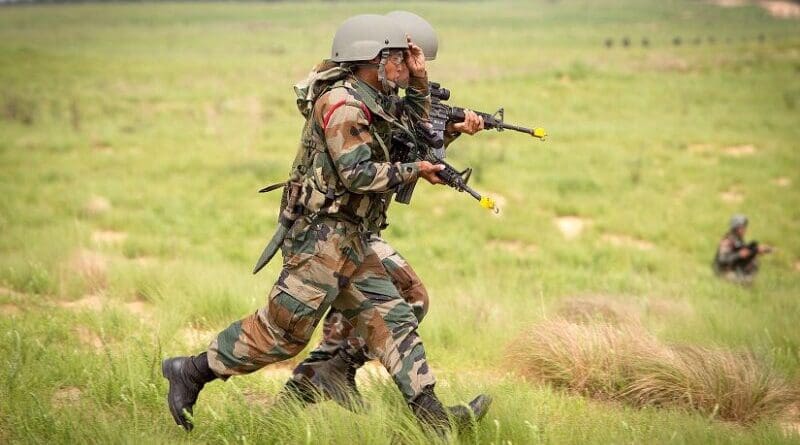India Land Warfare: An Enigma For Pakistan – OpEd
India has been coming up with different iterated military doctrines to tackle the threat matrix of security since last two decades. The Indian security analyst have faith in the doctrines that the only path to preserve the national interests and security. It in due course turned the South Asia into overt nuclearization and posed a serious threat to Pakistan. The Pakistan’s security experts always cope of with the Indian military doctrine, but the latest Land Warfare Doctrine seems to be more intricated.
Indian military opted for its first official military doctrine in 1998, and again came up with brush up version in 2004. Indian army adopted a new frame of mind with sub-conventional warfare doctrine in 2006. The recently introduced doctrine is Land Warfare Doctrine of 2018—emanated by the Joint Doctrine of Indian Arm Forces of 2017.
The Land Warfare Doctrine (LWD) embrace multiple aspects of Indian security. The latest doctrine divulged officially in December 14, 2018. This doctrine governs the Indian Army approach to modern-day security and geopolitics and will be carried out along with politico-diplomacy initiatives in order to protect the national interests and sovereignty at meta level. The contemporary scenario is ‘No War No Peace’ and Indian Army have to look after from an entire spectrum of conflict.
The doctrine laid focus on forces modernization, resources optimization and developing strategies that handle the external and internal threats. It is quite complex to solve a multifront challenges, particularly the hybrid or Gary Zone conflicts.
This ‘No War No Peace’ scenario can be expunged by understanding the environmental realities, this doctrine is all about, like border management (the northern and western borders), enhancing deterrence, synergizing the Army (the applications of land, maritime and air component) and getting asymmetry in the region. The nuclear asymmetry is the core of LWD. The Indian army will equip the force with chemical, biological or radioactive weapons in the battle ground. In nutshell, Indian army will cover the multifront challenges and threats by modernizing the military and resource management and integration of all forces to optimize the efficiency of the forces in ‘No War No Peace’ scenario.
The over nuclearization in South Asia lead to deterrence between India and Pakistan and closed the doors for conventional war for a long time. After the first India military doctrine of 1998, India came up with new with the passage of time, it threatens the deterrence stability in South Asia. Pakistan came up with a counter strategy to its counterpart state, but the latest doctrine is an enigma to be tackle. To Cold-Start Doctrine, a strategy for limited war, Pakistan opted for nuclear low yield battlefield aka Tactical Nuclear Nukes.
Implication for Pakistan:
The rapid doctrinal change and military modernization drive by India would create security dilemma for Pakistan. The reason is that Pakistan lacks strategic depth. Furthermore, the Indian conventional arms asymmetry will also make a strategic disparity in South Asia. Such steps will further incline the region to a more complex mayhem and turmoil.
According to Stockholm International Peace Research Institute (SIPRI), India is world’s largest importer of major arms, accounting to 13 per cent of the global total sales. Pakistan lacks economic strength to compete India in arms race. India is in the process of purchasing long-range air defense systems (S400 and Barak-8), Long endurance UAVs, P8I Anti-Submarine-Surveillance and Reconnaissance Aircraft, Nuclear Submarines, Fifth Generation aircraft and spy satellites et al.
All these have created a serious environment for Pakistan to overcome. But Pakistan has to rely on its indigenous arms industry. The modernization of nukes at home will be fruitful and will reduce the Pakistan dependency abroad particularly in the stage of tough economic conditions. Pakistan has to pay more attention to its Tactical Nuclear Weapons both short and long range to throw the foes into a corner.
*Mujeeb Ullah has a degree in International Politics and is based in Islamabad.

